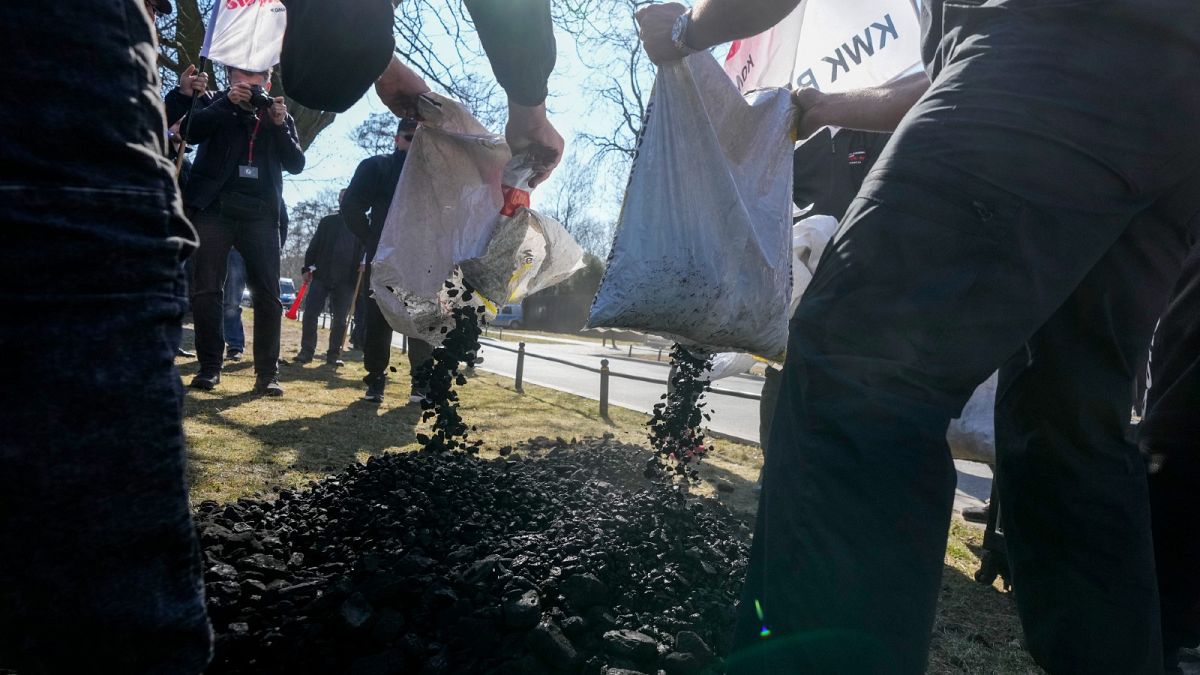Imports of Russian coal are no longer allowed into the European Union.
European Union sanctions on Russian coal have come into force.
The import ban on all forms of Russian coal was agreed in April as part of the fifth package of sanctions against Russia with 10 August marked as the end of the wind-down period for imports.
Coal was the first Russian energy source to be sanctioned by the EU, with an oil embargo on Russian seaborne oil approved in June as part of the sixth round of sanctions and due to come into force at the end of the year.
EU member states spend a lot more on Russian oil and gas -- the latter of which has not been sanctioned -- than on coal. The Commission said that the coal embargo should result in a loss of revenue of about €8 billion for Russia while data from the World Economic Forum show that the 27-country bloc spent €99 billion on Russian energy imports last year.
A Beyond Coal tracker estimates that the EU coughed up more than €45 billion and €32 billion on Russian oil and gas respectively between 24 February, when Moscow launched its war against Ukraine, and August 10. Meanwhile, it spent €2.8 billion on Russian coal.
Yet the energy crisis impacting Europe means that some member states including Germany, Austria and the Netherlands have reverted to coal in order to save and store gas before the winter.
This could have an impact on their ability to respect the European Climate Law that sets the intermediate target of reducing net greenhouse gas emissions by at least 55% by 2030, compared to 1990 levels to get to carbon neutrality by 2050.
Only 10 EU member states were coal-free as of 2021 with all having different targets to exit coal completely. Poland is expected to be the last country to stop using coal, having set 2049 as its deadline.
